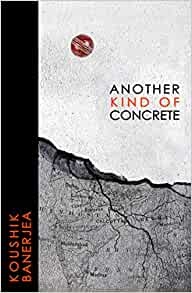This is the last article you can read this month
You can read more article this month
You can read more articles this month
Sorry your limit is up for this month
Reset on:
Please help support the Morning Star by subscribing here
IN THE 1970s, when concrete was king, the people of Britain had a brutalist streak to match.

While these days the taking of offence is virtually a national sport, back then there was little need to search for insult. Abuse, in its multiple forms, came straight to your face — and often with a slap for good measure.
Koushik Banerjea’s debut novel is set in those far-off and harder times, when nastiness seemed to be baked into the system and the best survival option was to toughen up, keep your head down and take whatever was thrown at you.
That’s the strategy, at least, of Banerjea’s central character. K is born to Bengali parents whose lives have been disrupted first by partition, then by emigration and now, in London, people shoving shit through their letterbox.

As punk begins to rage across the capital, K is at junior school. He's ignored by the teachers, bored by the unchallenging curriculum and haunted by the childish malice of his peers, shaped by the prejudices of the adult world.
As both a protective measure and a conscious rejection of all he sees around him, he spends most of his non-classroom time ensconced in the library, safe in the company of another outsider — a young girl of West Indian origin — finding solace in the learning of new words from a dictionary.
At home, trying to come to terms with neighbours both hostile and friendly, he lives in the shadow of a mysterious, hard-as-nails uncle — his alter ego, perhaps. A man shaped by dark events in India, he eventually takes revenge for the never-ending slights and insults in dramatic and ugly fashion.
This is a story told with eloquence and a palpable joy in language, both English and Bengali. It’s also beautifully and evocatively multi-layered, shot through with subtle complexity as we flit in and out of the lives of its characters across geography and time.
With understated pathos and unsentimental precision, Banerjea shows us that cruelty is as corrosive to the souls of its perpetrators as to its victims and that while we may have become a kinder society in many ways since the 1970s, in others aspects things remain the same.
It’s a dazzling debut that brilliantly explores the interconnections between race and class and it deserves to be read as widely as possible.
Published by Jacaranda Books, £8.99.









